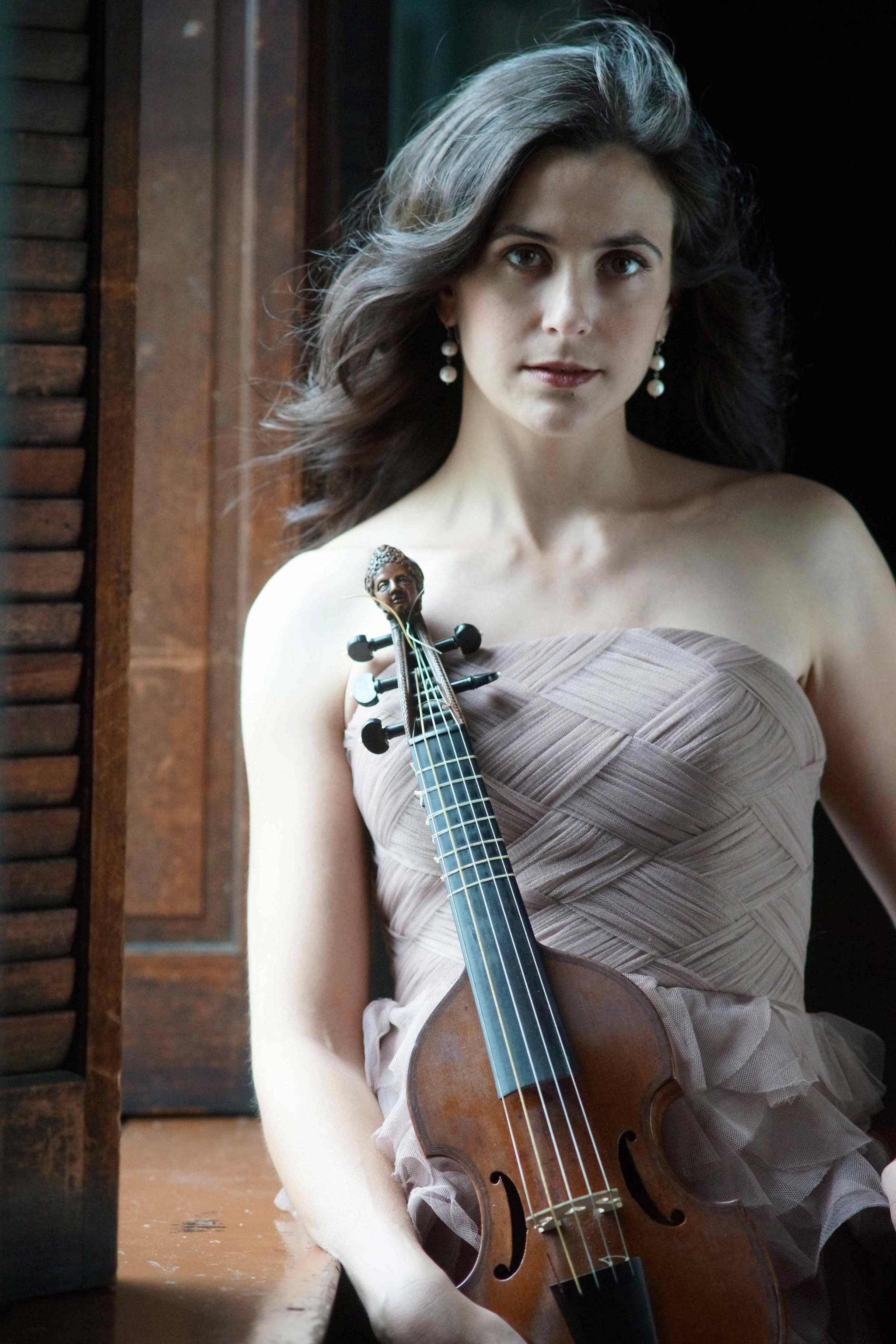Submitted by Jeffrey Cohan
The opening performance among seven in the 2018 Salish Sea Early Music Festival features the treble viol, which is similar to a violin. The concert is at 7 p.m., Friday, Jan. 26 at Brickworks at 150 Nichols Street. Admission is by suggested donations of $15, $20 or $25 and those 18 and under are free.
The show features Annalisa Pappano from Cincinnati. Pappano is one of the world’s foremost players of treble viol and she also plays the pardessus de viole, lirone, and viola da gamba and directs the Catacoustic Consort. Michael Freimuth from Kiel, Germany is also performing and is one of Europe’s most active performers on baroque guitar and theorbo, along with Renaissance and Baroque flutist and artistic director Jeffrey Cohan.
The treble viol was widely used during the 17th and early 18th centuries but is seldom heard today, as is also true of the renaissance transverse flute. This exploration of mostly French and Italian repertoire for treble viol, baroque guitar and flute from about 1625 to 1725 will present solos, duos and trios by Buonamente, Sweelinck, Heudelinne, Lully, De Visee, and Cheron.
There will be performances on Lopez at noon, Jan. 27, at 70 Sunset Ln., Grace Church, 360-468-3477 and on Orcas at 7 p.m., Saturday, Jan. 27, at 107 Enchanted Forest Road in Eastsound, 360-378-6632.
The music festival has featured some of the finest period instrument specialists for eight years. The event presents music from the Renaissance through the time of Beethoven on period instruments in Friday Harbor. For info, visit www.salishseafestival.org/sanjuan.
2018 Schedule
Each performance of the Salish Sea Early Music Festival will be held at Brickworks in Friday Harbor.
Flute Tiros: 7 p.m., Friday, Feb. 16
A baroque flute trios with harpsichord with renowned flutist, featuring Janet See and Mindy Rosenfeld of the Baltimore Consort.
Four Part Canzonas 1585-1625: 7 p.m., Sunday, March 11
A rarely-heard Italian four-part canzona, inspired by four-part French and Flemish chansons, which blossomed in print from 1582 to 1628 concurrently with the emerging “baroque” style.
The Instrumental Air De Cour: 7 p.m., Friday, April 13
The intensely moving and intimate vocal French air de cour, which inspired instrumentalists from the late 16th century and yielded trends that resonated still in the early 1700s.
The Capable Virtuoso: 1 p.m., Sunday, May 20
Johann Mattheson’s “The Capable Virtuoso”, published in Hamburg in 1720, sets the tone for this program of trio sonatas inspired by Corelli and the idea that Italian, French, and German styles might be fused in an integrated musical style.
Bach’s Brandenburg Concerto: 1 p.m., Sunday, May 27
The fifth Brandenburg Concerto by Johann Sebastian Bach and other works for flute, violin, harpsichord and string chamber orchestra.
Frederick the Great: 7 p.m. Friday, June 8
Slvius Leopold Weiss, the most prolific and highly esteemed lutenist of the baroque and teacher of Frederick the Great, wrote sonatas for obbligato lute and flute from which this program branches out to explore music at the court of the flutist King Frederick II of Prussia.



